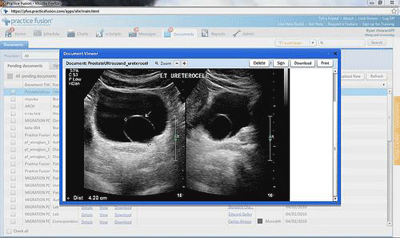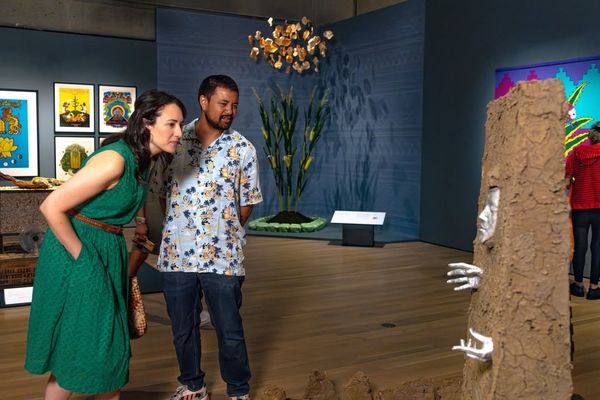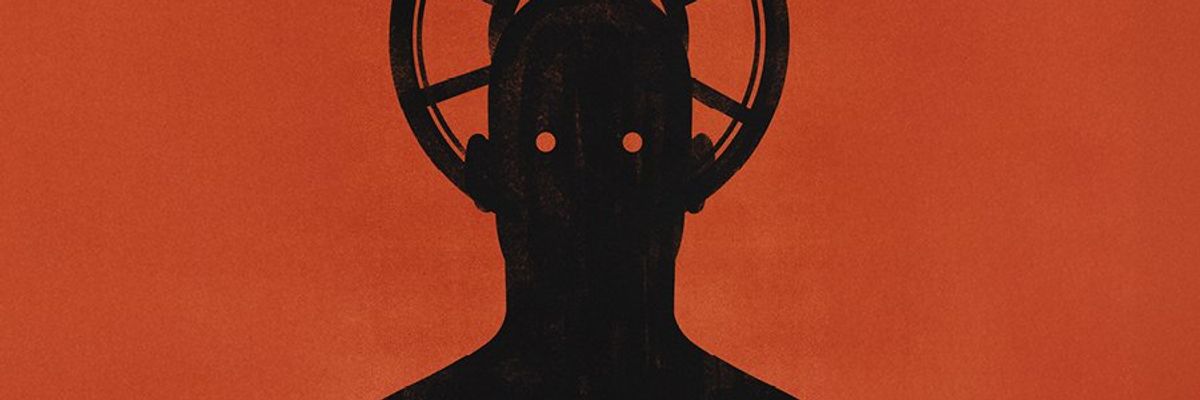A few years ago, when orthopedic surgeon Dr. David Chang was opening his Bay Area Sports Orthopaedics practice in Oakland, he tried to go "paperless."
"I figured that as a young guy, tech-savvy, and being a small practice, I could do it," he recounts. "But I was wrong."
After a number of attempts, including purchasing a $20,000 electronic records system that was so bad he had to quickly shelve it, the Stanford grad returned to the "old-fashioned way -- paper and pen" to do his work.
It's not that there weren't EHR options; it's just that they were all too difficult for doctors to use. "Too many physicians I know are burdened by these systems, which are too time consuming. They reduce doctors to data entry clerks. You don't want your doctor to be a transcriptionist!"
But then, maybe a year and a half ago, he stumbled upon Practice Fusion, a San Francisco-based company that provides electronic health records (EHR) services to doctors for free.
"Of course I was wary of a free product. What was their angle? Did it work? Was this just another startup that wouldn't be around after the next three or four years?"
He decided to drive across the Bay Bridge and visit the Practice Fusion office. There, not only were his doubts allayed, he signed up to give the well-funded startup a try. "What blew me away is the leap of faith they made by importing all of my patient billing data for free without even knowing whether I was going to use their service yet. Other companies charge from $2,000-$5000 just to do that."
What Chang discovered was a user interface friendly to physicians, which is why Practice Fusion is growing at a "meteoric" pace, according to its medical director, Dr. Robert Rowley.
"We currently have around 80,000 users from about 44,000 practices all over the country, and we're adding about 300 new users who are uploading some 70,000 records a day."
Rowley points out that about 70 percent of health care in the U.S. is provided by practices with five physicians or fewer. "This is still a Mom and Pop cottage industry by and large that can't afford to buy banks of servers or hire an IT staff. We're helping to bring these small practices into the modern era."
Practice Fusion stands out in the EHR industry not only because it is free (its main source of revenue comes from lucrative ads targeted at doctors), but it is cloud-based, with a platform designed with an open api, and is intuitively easy for doctors to fit into their work-flow.
Chang, for example, when examining one of his athlete clients (who include pro stars like the Seattle Seahawks' Leon Washington), can click down through a series of boxes that are pre-populated with symptoms like "swollen knee," quickly allowing him to create a new PHR (patient health record) and upload it to that patient's file.
There's little debate that this type of digital solution is long overdue in the medical profession, but there's still one critical party left out of the interactive loop and that would be the patient, e.g., you and me.
Health insurance companies already know more about our health history than we may be able to remember, plus most us have to change doctors every few years as we switch jobs and health plans or as we develop conditions that require new specialists, like Dr. Chang.
But Practice Fusion's Rowley envisions a time not far off when we patients get to join the data party. "Right now your doctor can sign you up to see parts of your record, but what's coming soon is a secure two-way communication system back and forth between you and your physicians."
This is a key to why past efforts at launching PHR products by companies such as Google and Microsoft, not to mention many others, have failed, because, as Rowley puts it, "standalone personal health records are not the answer.
"Our vision for the future is that all your data will be consolidated in one place that is patient-owned. Whenever a doctor makes a change to your record you will see that change. Today everything is fragmented but the winds are blowing away from the era when illegible pieces of paper in a shoebox somewhere composed your personal health record.
"It's important," he says, "for the health of individuals and for the health of the country that we fix this. Soon," he concludes, "you will be able to ensure that your health data will follow you through life."





















